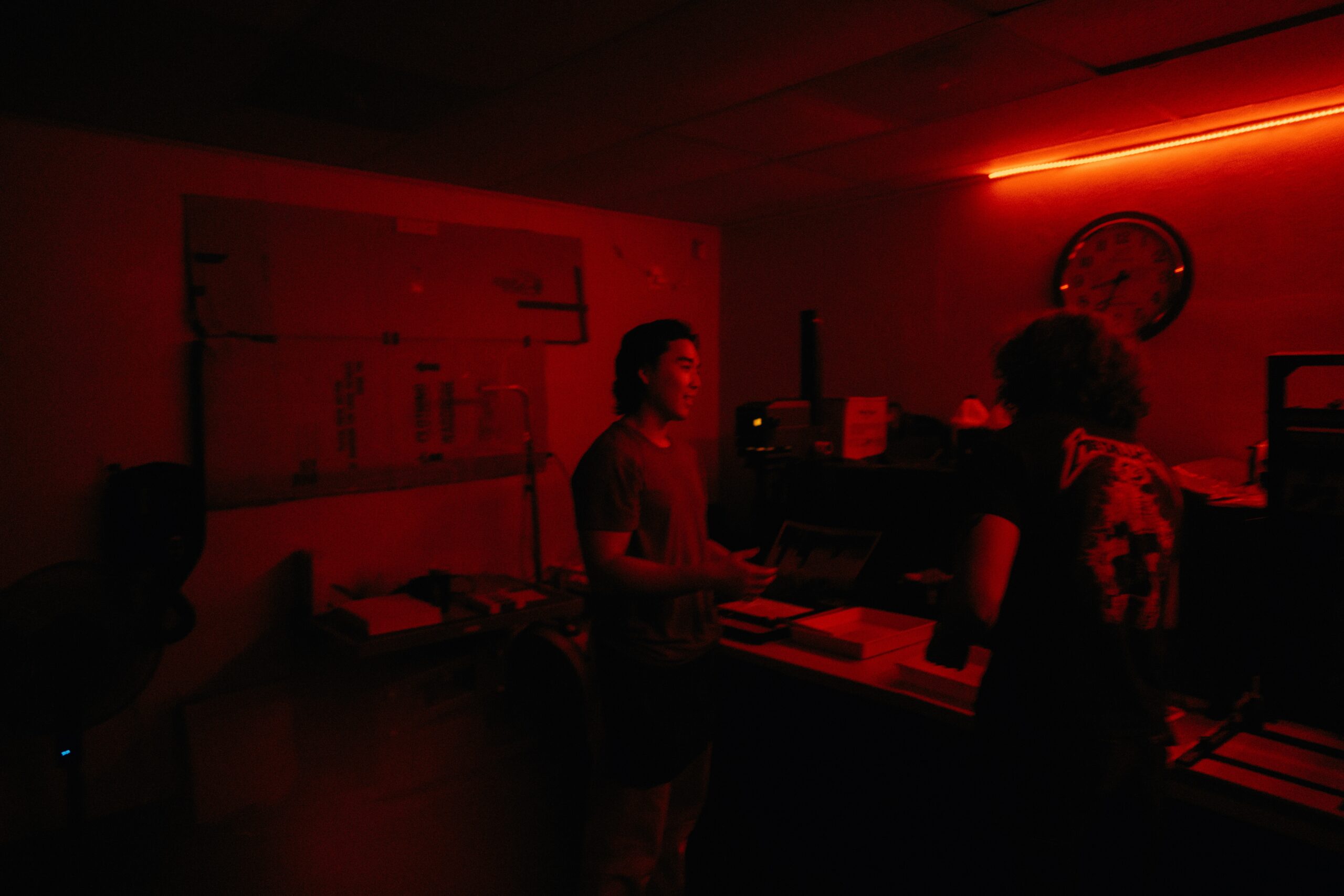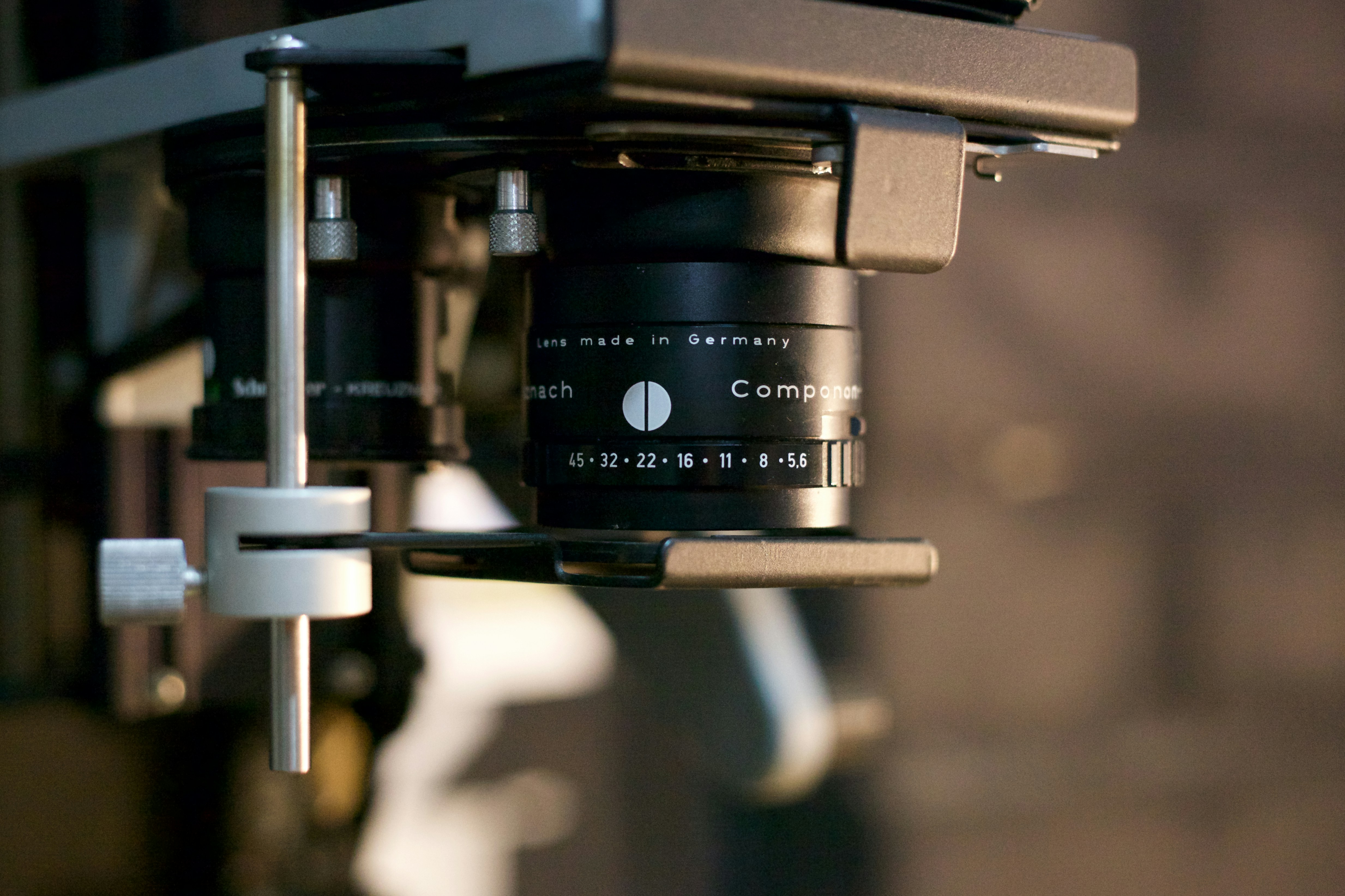Have you ever wondered if an enlarged prostate is the same as prostate cancer? It's a common concern that many men have, but the answer might surprise you. While an enlarged prostate and prostate cancer can have similar symptoms, they are actually two different conditions. An enlarged prostate, also known as benign prostatic hyperplasia (BPH), is a non-cancerous condition that affects many men as they age. On the other hand, prostate cancer is a malignant tumor that can develop in the prostate gland. Understanding the differences between the two is crucial for early detection and appropriate treatment. In this article, we will explore the distinctions between an enlarged prostate and prostate cancer, debunking any misconceptions and providing you with the information you need to stay informed about your health. No, an enlarged prostate is not the same as prostate cancer. Although they may have some similar symptoms and affect the same organ, they are two distinct conditions with different causes and treatment options. Understanding the differences between an enlarged prostate and prostate cancer is important for maintaining prostate health and seeking appropriate medical interventions when necessary.
Understanding Prostate Health
Before delving into the differences between an enlarged prostate and prostate cancer, it is essential to have a basic understanding of the prostate gland itself. The prostate is a small, walnut-sized gland located just below the bladder and in front of the rectum in men. It plays a crucial role in the reproductive system and is responsible for producing seminal fluid that nourishes and transports sperm during ejaculation.
Function of the Prostate
The primary function of the prostate gland is to support reproduction. It produces a fluid that, along with sperm from the testicles, makes up semen. This fluid helps to protect and nourish sperm, allowing them to survive and swim more effectively. Without a healthy prostate, the chances of successful reproduction may be significantly reduced.
Common Prostate Problems
Prostate problems are not uncommon, especially as men age. Two of the most prevalent issues related to the prostate are an enlarged prostate and prostate cancer. While they share the same organ, their causes and effects on men's health differ significantly.
Significance of an Enlarged Prostate
An enlarged prostate, medically known as benign prostatic hyperplasia (BPH), is a non-cancerous condition that commonly affects men as they age. It occurs when the prostate gland grows in size and begins to press against the bladder and urethra, causing bothersome symptoms. BPH is a common condition, affecting over 50% of men by the age of 60 and around 90% of men by the age of 85.
Definition of an Enlarged Prostate
An enlarged prostate is characterized by the non-cancerous growth of the prostate gland. As it enlarges, it can lead to various urinary symptoms, such as frequent urination, weak urine flow, difficulty starting and stopping urination, and incomplete emptying of the bladder. While an enlarged prostate can cause discomfort and inconvenience, it is not life-threatening and does not have a direct link to prostate cancer.
Different Medical Terms Linked to an Enlarged Prostate
When discussing an enlarged prostate, you may come across various medical terms used interchangeably. Some commonly used terms include benign prostatic hyperplasia (BPH), benign prostatic hypertrophy, and prostatic enlargement. These terms all refer to the non-cancerous growth of the prostate gland.
How an Enlarged Prostate Affects Men's Health
An enlarged prostate can significantly impact a man's quality of life. As the prostate gland grows in size, it can gradually obstruct the urethra, the tube that carries urine from the bladder through the penis. This obstruction impairs the normal flow of urine, leading to urinary symptoms such as frequent urination, nocturia (excessive nighttime urination), urgency, weak urine flow, and a feeling of incomplete emptying of the bladder.
While an enlarged prostate is not directly linked to prostate cancer, it is essential to manage its symptoms and seek appropriate treatment. Ignoring the symptoms and complications associated with an enlarged prostate can lead to further urinary problems, bladder and kidney issues, and a significantly impaired quality of life.
Significance of Prostate Cancer
Prostate cancer is a serious condition that affects the prostate gland. Unlike an enlarged prostate, prostate cancer involves the growth of malignant cells within the gland. It is one of the most prevalent types of cancer among men, with an estimated 1 in 8 men being diagnosed with prostate cancer during their lifetime.
Definition of Prostate Cancer
Prostate cancer is the development of malignant cells within the prostate gland. These cancerous cells can grow and multiply, potentially spreading beyond the gland and affecting nearby tissues and organs. If left untreated, prostate cancer can metastasize to other parts of the body, such as the bones, lymph nodes, and distant organs.
Common Symptoms of Prostate Cancer
Prostate cancer often presents with no symptoms in its early stages, which makes regular screening and check-ups crucial for early detection. However, as the cancer progresses, some common symptoms may arise. These can include urinary symptoms similar to those found in an enlarged prostate, such as frequent urination, weak urine flow, difficulty starting and stopping urination, and blood in the urine or semen. Other symptoms include bone pain, erectile dysfunction, and unexplained weight loss.
How Prostate Cancer Affects Men's Health
Prostate cancer has the potential to significantly impact a man's overall health and well-being. The effects can go beyond physical symptoms, often taking a toll on mental and emotional health as well. A prostate cancer diagnosis can induce anxiety, fear, and uncertainty about the future. Treatment options, such as surgery, radiation, or hormone therapy, may also have side effects that can affect urinary function, sexual health, and overall quality of life.
Differences Between an Enlarged Prostate and Prostate Cancer
Though an enlarged prostate and prostate cancer can share similar symptoms, they are distinct conditions with different causes, diagnostic methods, and treatment options.
Causes of an Enlarged Prostate vs Prostate Cancer
An enlarged prostate is primarily caused by age-related hormonal changes, specifically an increase in levels of dihydrotestosterone (DHT), a potent form of testosterone. These hormonal changes cause the prostate gland to grow in size gradually. On the other hand, the exact cause of prostate cancer is not yet fully understood, although factors such as age, genetics, family history, and certain lifestyle factors may play a role in its development.
Symptoms of an Enlarged Prostate vs Prostate Cancer
Both an enlarged prostate and prostate cancer can present with similar urinary symptoms. However, it is important to note that having symptoms does not necessarily mean having cancer. In the case of an enlarged prostate, the symptoms are related to the physical obstruction caused by the enlarged gland. In contrast, the symptoms of prostate cancer may arise due to the growth of malignant cells within the prostate or their spread to other areas of the body.
Diagnostics for Enlarged Prostate and Prostate Cancer
To differentiate between an enlarged prostate and prostate cancer, various diagnostic methods are utilized. For an enlarged prostate, a thorough medical history, physical examination, urine tests, and imaging studies like ultrasound or cystoscopy may be conducted. Prostate-specific antigen (PSA) blood tests can also be helpful in assessing the likelihood of prostate cancer. However, a definitive diagnosis of prostate cancer requires a prostate biopsy, where a small tissue sample is taken and examined under a microscope.
Treatment Options for an Enlarged Prostate and Prostate Cancer
The treatment options for an enlarged prostate and prostate cancer differ significantly, reflecting the distinct nature of the conditions. For an enlarged prostate, treatment options may include lifestyle changes, medications to relax the prostate and relieve symptoms, minimally invasive procedures to reduce the size of the prostate, or surgery in more severe cases. On the other hand, treatment for prostate cancer depends on various factors, such as the stage and aggressiveness of the cancer, as well as the individual's overall health. Options can include active surveillance, surgery, radiation therapy, hormone therapy, or chemotherapy.

Similarities Between an Enlarged Prostate and Prostate Cancer
While an enlarged prostate and prostate cancer are different entities, they do share some similarities that can cause confusion and misconceptions.
Elderly Men as the Common Demographic
Both an enlarged prostate and prostate cancer are more prevalent in older men. Age is a significant risk factor for both conditions, with the likelihood increasing as men get older. However, it is important to note that an enlarged prostate is a natural part of the aging process, while prostate cancer is not an inevitable consequence of aging.
Similar Symptoms and Effects
An enlarged prostate and prostate cancer can both have an impact on urinary function and sexual health. Symptoms such as frequent urination, weak urine flow, and difficulty starting and stopping urination can occur in both conditions. Additionally, sexual dysfunction can be a result of either an enlarged prostate or prostate cancer. However, it is crucial to recognize that experiencing these symptoms does not automatically indicate the presence of prostate cancer.
Both Conditions Can Affect Urination and Sexual Health
Due to the proximity of the prostate gland to the urethra and its role in reproductive health, both an enlarged prostate and prostate cancer can affect urination and sexual health. The physical obstruction caused by an enlarged prostate may result in urinary symptoms, while prostate cancer or its treatment approaches can lead to similar issues.
Misconceptions About Enlarged Prostate and Prostate Cancer
Misconceptions and misinformation can lead to unnecessary anxiety, confusion, and delays in seeking appropriate medical care. It is important to address some common misconceptions surrounding an enlarged prostate and prostate cancer.
Is an Enlarged Prostate a Precursor to Prostate Cancer?
One common misconception is that an enlarged prostate is a precursor to prostate cancer. While an enlarged prostate can present with symptoms similar to those of prostate cancer, an enlarged prostate in itself does not increase the risk of developing prostate cancer.
Are the Treatments for an Enlarged Prostate and Prostate Cancer the Same?
Another misconception is that the treatment options for an enlarged prostate and prostate cancer are the same. In reality, the approaches to managing each condition are distinct and tailored to the specific needs of the individual. Treatment for an enlarged prostate aims to relieve symptoms and improve urinary function, whereas treatment for prostate cancer focuses on removing or controlling the cancerous cells.
Does Sexual Activity Influence the Risk of Developing Either Condition?
There is no scientific evidence to suggest that sexual activity directly influences the risk of developing an enlarged prostate or prostate cancer. However, maintaining a healthy and active lifestyle can contribute to overall prostate health and potentially decrease the risk of developing both conditions.

Prevention and Management of an Enlarged Prostate
While an enlarged prostate cannot always be prevented, certain strategies can help manage the condition and minimize its impact on daily life.
Healthy Lifestyle Choices
Maintaining a healthy lifestyle can play a significant role in managing an enlarged prostate. Regular exercise, a well-balanced diet, and maintaining a healthy weight can help alleviate symptoms and promote overall prostate health.
Regular Screening and Check-ups
Routine screenings and check-ups can help detect an enlarged prostate early on and allow for timely interventions. During these appointments, your healthcare provider can evaluate your urinary symptoms, perform a physical examination, and order appropriate tests to assess the size and function of your prostate gland.
Medication and Procedures for an Enlarged Prostate
In cases where an enlarged prostate causes significant discomfort or affects urinary function, various medications and medical procedures may be recommended. Medications can help relax the prostate and reduce symptoms, while procedures such as transurethral resection of the prostate (TURP) or laser surgery can effectively remove or reduce the size of the gland.
Prevention and Management of Prostate Cancer
Prostate cancer prevention and management strategies are aimed at reducing the risk of developing the disease, detecting it early, and providing appropriate treatments when necessary.
Healthy Lifestyle Choices
Modifying certain lifestyle factors can contribute to reducing the risk of prostate cancer. Engaging in regular exercise, maintaining a healthy weight, and consuming a balanced diet rich in fruits, vegetables, and whole grains are all recommended for promoting prostate health.
Regular Screening and Check-ups
Regular screening for prostate cancer is crucial, especially for men over the age of 50 or those at higher risk due to family history or other factors. The prostate-specific antigen (PSA) blood test and digital rectal exam (DRE) are commonly used screening methods to detect possible signs of prostate cancer.
Treatment Procedures for Prostate Cancer
Treatment options for prostate cancer can vary depending on the stage and aggressiveness of the cancer, as well as the individual's overall health. Often, a multidisciplinary approach involving a combination of surgery, radiation therapy, hormone therapy, or chemotherapy is utilized to provide the best possible outcome.
Role of Diet in Prostate Health
The role of diet in maintaining prostate health has been a topic of interest and research. While there is no one-size-fits-all approach, certain dietary choices can positively influence prostate health.
Nutrition Tips for a Healthy Prostate
Consuming a diet rich in fruits, vegetables, whole grains, and lean proteins can contribute to overall prostate health. Incorporating foods that are high in antioxidants, such as berries, tomatoes, and green leafy vegetables, can be particularly beneficial.
What Foods Lead to a Healthy Prostate?
Some foods have shown potential in promoting prostate health. These include tomatoes, which contain the antioxidant lycopene, and fatty fish, such as salmon, which is a good source of omega-3 fatty acids. Additionally, green tea and cruciferous vegetables like broccoli, cauliflower, and Brussels sprouts have been associated with a reduced risk of prostate cancer.
What Foods to Avoid for a Healthy Prostate?
While there is no definitive list of foods that can directly cause an enlarged prostate or prostate cancer, certain dietary factors may increase the risk or worsen symptoms. Limiting the consumption of processed foods, red and processed meats, and high-fat dairy products is often recommended for maintaining prostate health.
Psychological Impact of an Enlarged Prostate and Prostate Cancer
An enlarged prostate and prostate cancer can have a significant psychological impact on an individual's mental and emotional well-being. Dealing with the diagnosis, treatment options, and potential side effects can lead to anxiety, stress, and emotional distress.
Anxiety and Stress Related to Diagnosis
Receiving a diagnosis of an enlarged prostate or prostate cancer can trigger a range of emotions, including anxiety and stress. Patients may experience worry about their prognosis, potential treatment side effects, and the impact on their daily lives. It is important for individuals to seek support from healthcare professionals, loved ones, and support groups to help manage these emotional challenges.
Impact on Sexual Health and Relationships
Both an enlarged prostate and prostate cancer can affect sexual health and relationships. Symptoms such as erectile dysfunction, loss of libido, and changes in sexual function may arise due to the conditions or their treatments. Open communication with healthcare providers and partners can help address concerns and explore options for managing these effects.
Coping Strategies and Support
Coping with the psychological impact of an enlarged prostate or prostate cancer requires a multifaceted approach. Seeking emotional support from loved ones, joining support groups, and accessing counseling services can provide a safe space to express feelings, learn coping strategies, and gain insight from others going through similar experiences.
In conclusion, while an enlarged prostate and prostate cancer may share some similarities, they are distinct conditions with different causes, diagnostic methods, and treatment options. It is important to understand the differences between the two and seek appropriate medical care when needed. Maintaining a healthy lifestyle, regular screening, and open communication with healthcare professionals are key in promoting and maintaining prostate health. By being aware and proactive about prostate health, men can take steps towards early detection, effective management, and overall well-being.


